DOVER THRIFT EDITIONS
NONFICTION
NARRATIVE OF THE LIFE OF FREDERICK DOUGLASS, Frederick Douglass. 96pp. 0-486-28499-9
SELF-RELIANCE AND OTHER ESSAYS, Ralph Waldo Emerson. 128pp. 0-486-27790-9
THE LIFE OF OLAUDAH EQUIANO, OR GUSTAVUS VASSA, THE AFRICAN, Olaudah Equiano. 192pp. 0-486-40661-X
THE AUTOBIOGRAPHY OF BENJAMIN FRANKLIN, Benjamin Franklin. 144pp. 0-486-29073-5
TOTEM AND TABOO, Sigmund Freud. 176pp. (Not available in Europe or United Kingdom.) 0-486-40434-X
LOVE: A Book of Quotations, Herb Galewitz (ed.). 64pp. 0-486-40004-2
PRAGMATISM, William James. 128pp. 0-486-28270-8
THE STORY OF MY LIFE, Helen Keller. 80pp. 0-486-29249-5
TAO TE CHING, Lao Tze. 112pp. 0-486-29792-6
GREAT SPEECHES, Abraham Lincoln. 112pp. 0-486-26872-1
THE PRINCE, Niccol Machiavelli. 80pp. 0-486-27274-5
THE SUBJECTION OF WOMEN, John Stuart Mill. 112pp. 0-486-29601-6
SELECTED ESSAYS, Michel de Montaigne. 96pp. 0-486-29109-X
UTOPIA, Sir Thomas More. 96pp. 0-486-29583-4
BEYOND GOOD AND EVIL: Prelude to a Philosophy of the Future, Friedrich Nietzsche. 176pp. 0-486-29868-X
THE BIRTH OF TRAGEDY, Friedrich Nietzsche. 96pp. 0-486-28515-4
COMMON SENSE, Thomas Paine. 64pp. 0-486-29602-4
SYMPOSIUM AND PHAEDRUS, Plato. 96pp. 0-486-27798-4
THE TRIAL AND DEATH OF SOCRATES: Four Dialogues, Plato. 128pp. 0-486-27066-1
A MODEST PROPOSAL AND OTHER SATIRICAL WORKS, Jonathan Swift. 64pp. 0-486-28759-9
CIVIL DISOBEDIENCE AND OTHER ESSAYS, Henry David Thoreau. 96pp. 0-486-27563-9
WALDEN; OR, LIFE IN THE WOODS, Henry David Thoreau. 224pp. 0-486-28495-6
NARRATIVE OF SOJOURNER TRUTH, Sojourner Truth. 80pp. 0-486-29899-X
THE THEORY OF THE LEISURE CLASS, Thorstein Veblen. 256pp. 0-486-28062-4
DE PROFUNDIS, Oscar Wilde. 64pp. 0-486-29308-4
OSCAR WILDES WIT AND WISDOM: A Book of Quotations, Oscar Wilde. 64pp. 0-486-40146-4
UP FROM SLAVERY, Booker T. Washington. 160pp. 0-486-28738-6
A VINDICATION OF THE RIGHTS OF WOMAN, Mary Wollstonecraft. 224pp. 0-486-29036-0
All books complete and unabridged. All  x 8, paperbound. Available at your book dealer, online at www.doverpublications.com , or by writing to Dept. GI, Dover Publications, Inc., 31 East 2nd Street, Mineola, NY 11501. For current price information or for free catalogs (please indicate field of interest), write to Dover Publications or log on to www.doverpublications.com and see every Dover book in print. Dover publishes more than 500 books each year on science, elementary and advanced mathematics, biology, music, art, literary history, social sciences, and other areas.
x 8, paperbound. Available at your book dealer, online at www.doverpublications.com , or by writing to Dept. GI, Dover Publications, Inc., 31 East 2nd Street, Mineola, NY 11501. For current price information or for free catalogs (please indicate field of interest), write to Dover Publications or log on to www.doverpublications.com and see every Dover book in print. Dover publishes more than 500 books each year on science, elementary and advanced mathematics, biology, music, art, literary history, social sciences, and other areas.
CHAPTER I
A Slave among Slaves
I WAS BORN a slave on a plantation in Franklin County, Virginia. I am not quite sure of the exact place or exact date of my birth, but at any rate I suspect I must have been born somewhere and at some time. As nearly as I have been able to learn, I was born near a cross-roads post-office called Hales Ford, and the year was 1858 or 1859. I do not know the month or the day. The earliest impressions I can now recall are of the plantation and the slave quartersthe latter being the part of the plantation where the slaves had their cabins.
My life had its beginning in the midst of the most miserable, desolate, and discouraging surroundings. This was so, however, not because my owners were especially cruel, for they were not, as compared with many others. I was born in a typical log cabin, about fourteen by sixteen feet square. In this cabin I lived with my mother and a brother and sister till after the Civil War, when we were all declared free.
Of my ancestry I know almost nothing. In the slave quarters, and even later, I heard whispered conversations among the coloured people of the tortures which the slaves, including, no doubt, my ancestors on my mothers side, suffered in the middle passage of the slave ship while being conveyed from Africa to America. I have been unsuccessful in securing any information that would throw any accurate light upon the history of my family beyond my mother. She, I remember, had a half-brother and a half-sister. In the days of slavery not very much attention was given to family history and family recordsthat is, black family records. My mother, I suppose, attracted the attention of a purchaser who was afterward my owner and hers. Her addition to the slave family attracted about as much attention as the purchase of a new horse or cow. Of my father I know even less than of my mother. I do not even know his name. I have heard reports to the effect that he was a white man who lived on one of the near-by plantations. Whoever he was, I never heard of his taking the least interest in me or providing in any way for my rearing. But I do not find especial fault with him. He was simply another unfortunate victim of the institution which the Nation unhappily had engrafted upon it at that time.
The cabin was not only our living-place, but was also used as the kitchen for the plantation. My mother was the plantation cook. The cabin was without glass windows; it had only openings in the side which let in the light, and also the cold, chilly air of winter. There was a door to the cabin that is, something that was called a door but the uncertain hinges by which it was hung, and the large cracks in it, to say nothing of the fact that it was too small, made the room a very uncomfortable one. In addition to these openings there was, in the lower right-hand corner of the room, the cat-hole, a contrivance which almost every mansion or cabin in Virginia possessed during the ante-bellum period. The cat-hole was a square opening, about seven by eight inches, provided for the purpose of letting the cat pass in and out of the house at will during the night. In the case of our particular cabin I could never understand the necessity for this convenience, since there were at least a half-dozen other places in the cabin that would have accommodated the cats. There was no wooden floor in our cabin, the naked earth being used as a floor. In the centre of the earthen floor there was a large, deep opening covered with boards, which was used as a place in which to store sweet potatoes during the winter. An impression of this potato-hole is very distinctly engraved upon my memory, because I recall that during the process of putting the potatoes in or taking them out I would often come into possession of one or two, which I roasted and thoroughly enjoyed. There was no cooking-stove on our plantation, and all the cooking for the whites and slaves my mother had to do over an open fireplace, mostly in pots and skillets. While the poorly built cabin caused us to suffer with cold in the winter, the heat from the open fireplace in summer was equally trying.
The early years of my life, which were spent in the little cabin, were not very different from those of thousands of other slaves. My mother, of course, had little time in which to give attention to the training of her children during the day. She snatched a few moments for our care in the early morning before her work began, and at night after the days work was done. One of my earliest recollections is that of my mother cooking a chicken late at night, and awakening her children for the purpose of feeding them. How or where she got it I do not know. I presume, however, it was procured from our owners farm. Some people may call this theft. If such a thing were to happen now, I should condemn it as theft myself. But taking place at the time it did, and for the reason that it did, no one could ever make me believe that my mother was guilty of thieving. She was simply a victim of the system of slavery. I cannot remember having slept in a bed until after our family was declared free by the Emancipation Proclamation. Three children John, my older brother, Amanda, my sister, and myself had a pallet on the dirt floor, or, to be more correct, we slept in and on a bundle of filthy rags laid upon the dirt floor.

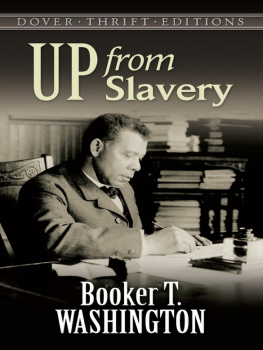

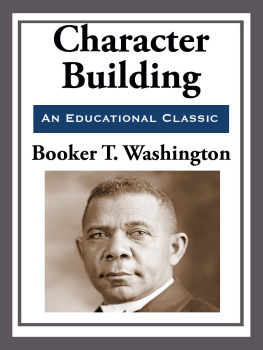
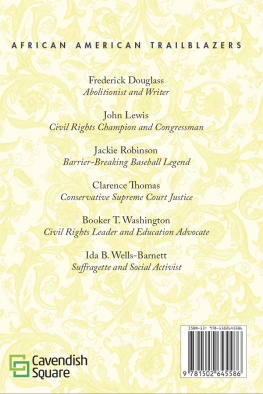
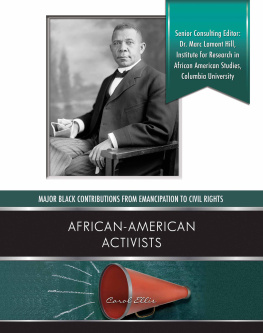


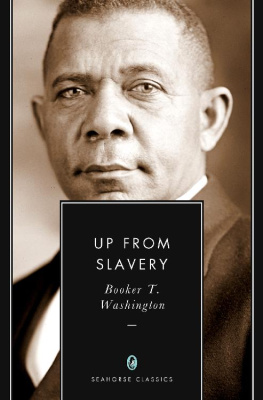
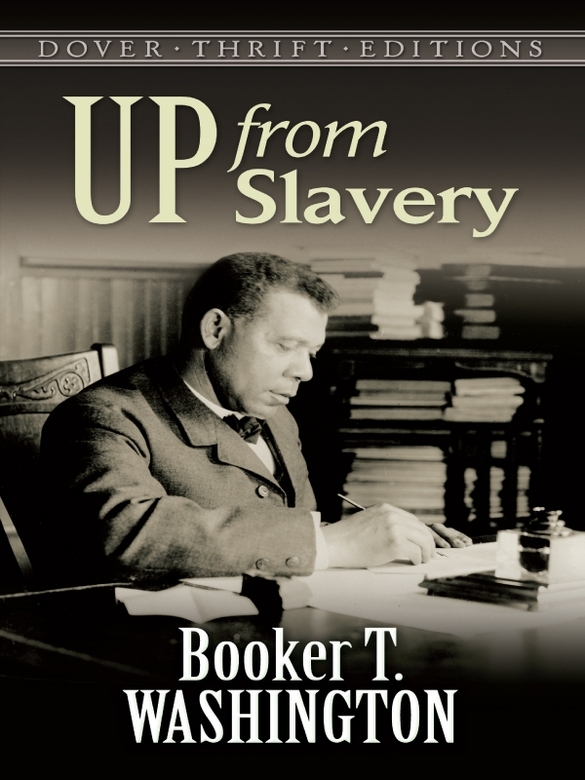
 x 8, paperbound. Available at your book dealer, online at www.doverpublications.com , or by writing to Dept. GI, Dover Publications, Inc., 31 East 2nd Street, Mineola, NY 11501. For current price information or for free catalogs (please indicate field of interest), write to Dover Publications or log on to www.doverpublications.com and see every Dover book in print. Dover publishes more than 500 books each year on science, elementary and advanced mathematics, biology, music, art, literary history, social sciences, and other areas.
x 8, paperbound. Available at your book dealer, online at www.doverpublications.com , or by writing to Dept. GI, Dover Publications, Inc., 31 East 2nd Street, Mineola, NY 11501. For current price information or for free catalogs (please indicate field of interest), write to Dover Publications or log on to www.doverpublications.com and see every Dover book in print. Dover publishes more than 500 books each year on science, elementary and advanced mathematics, biology, music, art, literary history, social sciences, and other areas.